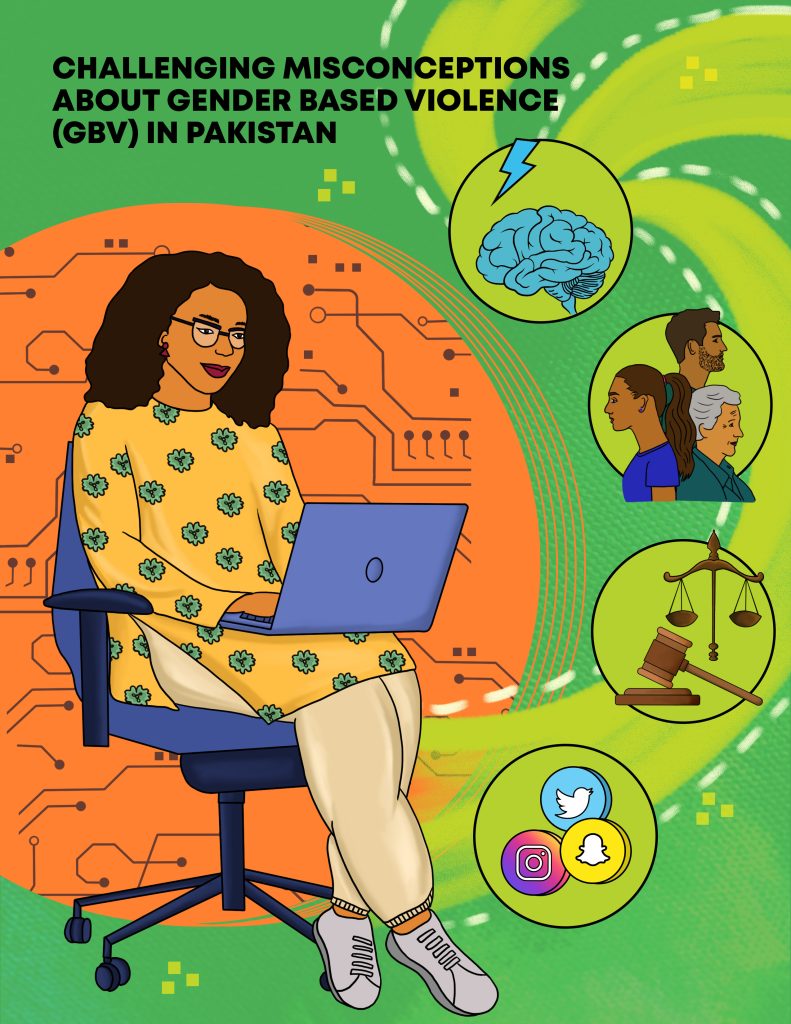Challenging Misconceptions about Gender Based Violence (GBV) in Pakistan

Editor's Note
***Trigger Warning***
“So just one slap then?”, a lawyer in the Bollywood movie, “Thappad” (Slap), astonishingly questions a victim of domestic abuse who is seeking divorce after her husband slaps her, “just once”. The powerful scene from the movie evoked many different emotions and raised profound questions. The pervasive nature of domestic violence, often hidden behind societal stereotypes, compels us to question when one should walk away—after one slap, two, or ten? The discussion ignited by the movie, extends beyond physical harm, acknowledging the various forms such violence can take, including psychological, emotional and economic abuse. These forms of violence are facilitated by the use of technology, and include but are not limited to non-consensual sharing of intimate images or personal data; technology- technology-facilitated sexual abuse; surveillance and stalking; and targeted hacking. Gender-based violence is overwhelmingly perpetrated against women and gender minorities particularly in patriarchal and conservation societies; however, other than domestic violence not enough research has been conducted on understanding its different dimensions particularly facilitated by technology.
As Digital 50.50 commemorates the 16 Days of Activism against Gender-Based Violence (GBV), an annual international campaign that kicks off on 25 November, the International Day for the Elimination of Violence against Women, and runs until 10 December, Human Rights Day, it becomes imperative to delve into the diverse dimensions of this complex issue in the offline and online world. In the absence of enough literature on GBV in Pakistan, during the 16Days, Digital 50.50 sought to address and deconstruct GBV myths and stereotypes, with a particular emphasis on their digital manifestations. We insist our readers to delve into the magazine with a little caution as it uncovers and investigates the cultural, social, legal, and psychological aspects of this complex issue in the digital realm.
We are sharing the work of some of our amazing contributors who have penned diverse perspectives and novel approaches to illuminating the root causes, consequences, and solutions to GBV, whether it occurs in physical spaces or on social media, online forums, or other digital platforms. As we absorb the thought-provoking writings and art from our contributors, let us envision a world transformed, a world where the only acceptable slap is that on patriarchy and violence.
With as much love as ever,
Maryam Saeed
Table of contents
- The Tight Slap - Pakistani dramas and the blurred lines between imitating and Influencing life | Sabah Bano Malik
- Beyond the Binary: Expanding the Discourse on GBV in Pakistan | Tehreem Azeem
- Breaking the Silence: Unraveling the Cycle of Emotional Abuse in Pakistani Society | Anmol Irfan
- Women Choose To Live With Abusive Partners, Only They Don’t | Halima Azhar
- Mired in Stereotypes: How the Women of Pakistan Live through the Hate | Zunaira Rafi
- No Space for Girls: Breaking Down Pervasive Stereotypes | Khalida Niaz
- Manufacturing Negativity: The Crucial Role of Drama Serials in Stereotyping Pakistani Women | Naheed Jehangir
- Breaking Down the Gender Pay Gap | Sabahat Khan
- Ensnared in Violence: The Tale of the Transgender Community in Pakistan | Asma Kundi
- Beyond Bruises: Why Isn't Psychological Violence Recognized as Violence? | Maria Anjum
